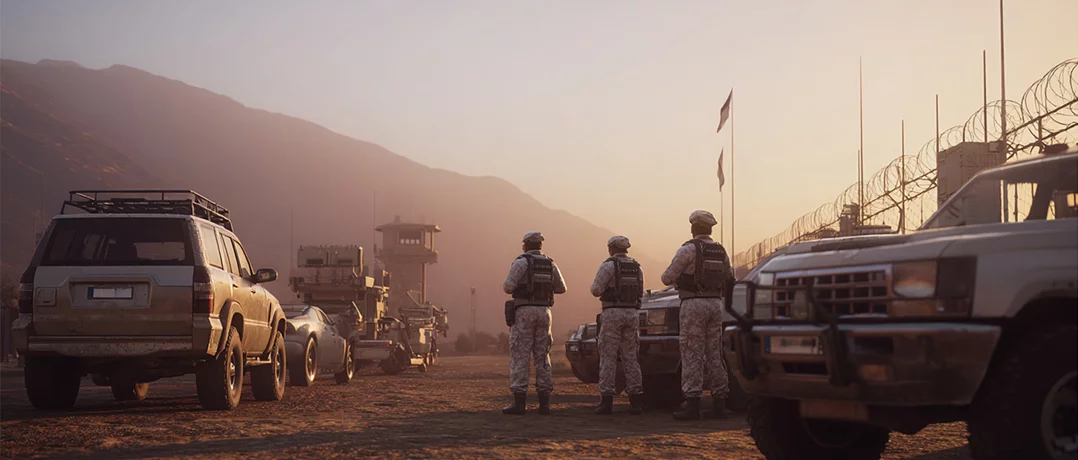Lebanon boosts border security and anti-narcotics cooperation with Syria and Saudi Arabia.
Lebanon advances border security and narcotics combat
Lebanon advances border security and narcotics combat


In an attempt to boost national and regional security, as well as crucial rapprochement with the Gulf states, Lebanon has stepped up its combat and coordination with regards to border security and narcotics.
To achieve this ambitious goal, it has embarked on an extensive cooperation with regional actors, especially with both Syria and Saudi Arabia.
Lebanese-Syrian border security agreement
On October 30, 2025, Lebanon and Syria reached an essential and impactful agreement. The two countries met in Beirut to discuss border security matters that have significant repercussions on both their local interests as well as regional ones.
The Syrian delegation was headed by Abdel Qader Tahan, Deputy Minister of Interior, while the Lebanese side was led by Major General Raed Abdallah, Director General of the Internal Security Forces (ISF), and General Security chief Major General Hassan Choucair. Tahan claimed that “any security threat in Lebanon inevitably affects Syria, and vice versa,” emphasizing the need for closer coordination given shared necessities and concerns.
The meeting came as a continuation to the historic border security agreement signed between Beirut and Damascus in Saudi Arabia on March 2025. Since the fall of the Assad regime in Syria on December 8, 2024, border security became an important issue to be tackled. Three contentious and sensitive matters have driven both sides to negotiate and try to find common ground.
The first is border clashes that erupted earlier this year. Several violent military activities were conducted between the Syrian armed forces (sometimes claiming certain militias or individuals’ responsibility), on the one hand, and the Lebanese Armed Forces (LAF) as well as Hezbollah, on the other. For instance, tensions escalated in early March when the new interim Syrian authorities claimed that Hezbollah had kidnapped and killed 3 Syrian soldiers on Lebanese territory. While the group denied any involvement, subsequent cross-border confrontations resulted in 10 casualties.
The second issue is sectarian violence, which is closely related to the first matter. Ever since the ousting of Bashar al-Assad, sectarian clashes and conflicts have occurred in Syria, most notably being in Alawite-majority Latakya and Druze-majority Sweida. Some Lebanese have not only offered their sympathy and support for their sectarian counterparts in Syria, but have threatened to directly intervene (even militarily). This has raised tensions as well as concerns about a potential spillover to Beirut or even the conflicts’ escalation.
The third issue is narcotics smuggling. During the ousted regime’s rule, narcotics manufacturing and smuggling have proliferated significantly. Captagon factories have been unveiled, which have helped in funding and preserving the regime. Hezbollah has allegedly participated in this criminal endeavor, aiding in the manufacturing and the smuggling of narcotics in both Lebanon and Syria.
Lebanese-Saudi narcotics cooperation
The issue of narcotics is of particular concern and interest in the Lebanese-Saudi relations. Riyadh has long suffered from smuggling of drugs into its country, coming namely from Lebanon and Syria. This has considerably strained Beirut’s relations with the kingdom, prompting Lebanese authorities to assert their convictions to combat this crime.
Lebanon’s Interior Minister Ahmad al-Hajjar confirmed Beirut’s sincere intention to achieve this objective, claiming that “after the election of President Joseph Aoun as head of state, it was noticeable how his oath of office included the need to combat narcotics, and so did the ministerial statement.” He added that “from the first meetings, I notified the relevant authorities that combatting narcotics is a national priority, and indeed each security apparatus took its own part in that regard. The Lebanese army exerted major efforts dismantling Captagon factories, raiding some real sensitive locations, the latest were in the Shatila Palestinian refugee camp which had long been outside the Lebanese state’s authority.”
These promising and successful campaigns could not have been achieved if it were not for the cooperation between Lebanon’s security apparatus (namely the Central Anti-Narcotics Bureau) and the Saudi General Directorate of Narcotics Control (GDNC). The latter managed to provide essential intel, which proved to be vital for Lebanese efforts in combating narcotics and break prominent smuggling cells.


